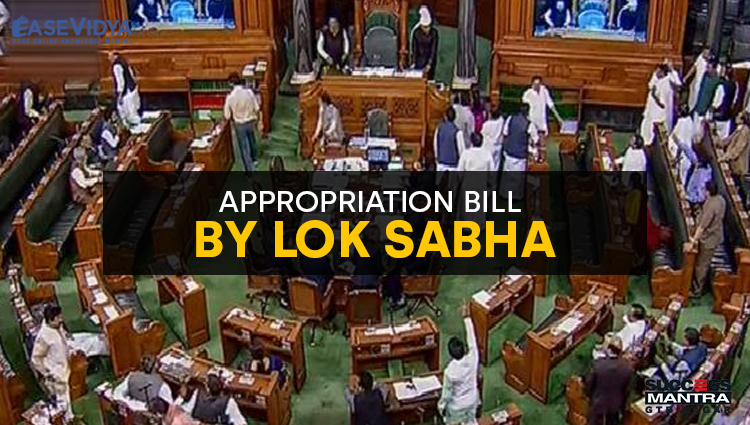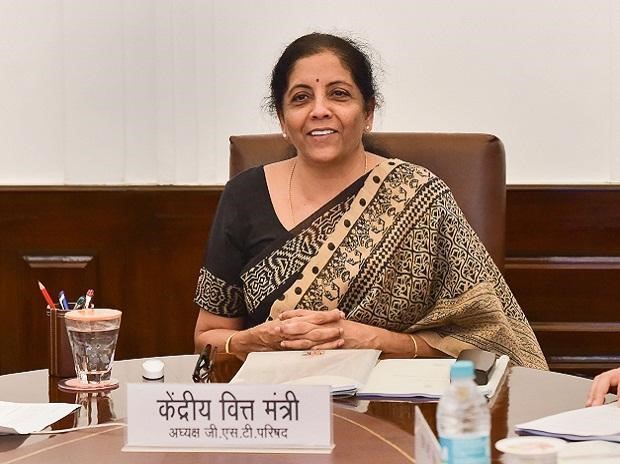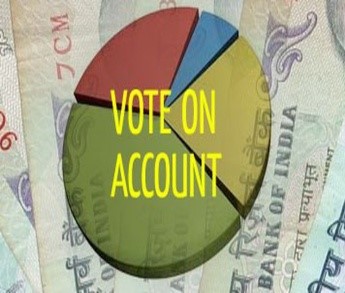
APPROPRIATION BILL CLEARED BY LOK SABHA
APPROPRIATION BILL CLEARED BY LOK SABHA

Recently, the Lok Sabha cleared the Appropriation Bill, allowing the Central government to draw funds from the Consolidated Fund of India. Appropriation Bill gives power to the government to withdraw funds from the Consolidated Fund of India for meeting the expenditure during the financial year. As per article 114 of the Constitution, the government can withdraw money from the Consolidated Fund only after receiving approval from Parliament. The amount withdrawn is used to meet the current expenditure during the financial year.
PROCEDURE FOLLOWED FOR APPROPRIATION BILL
The Appropriation Bill is introduced in the Lok Sabha after discussions on Budget proposals and Voting on Demand for Grants. The defeat of an Appropriation Bill in a parliamentary vote would lead to the resignation of a government or a general election. Once it is passed by the Lok Sabha it is sent to the Rajya Sabha.
Power of Rajya Sabha: It has the power to recommend any amendments in this Bill. However, it is the prerogative of the Lok Sabha to either accept or reject the recommendations made by the Rajya Sabha. After the bill receives assent from the president it becomes an Appropriation act. The unique feature of the Appropriation Bill is its automatic repeal clause, whereby the Act gets repealed by itself after it meets its statutory purpose. The government cannot withdraw money from the Consolidated Fund of India till the enactment of the appropriation bill. However, this takes time and the government needs money to carry on its normal activities. To meet the immediate expenses the Constitution has authorised the Lok Sabha to make any grant in advance for a part of the financial year. This provision is known as the ‘Vote on Account’.
VOTE ON ACCOUNT

A vote on account, as defined by Article 116 of the Indian Constitution, is a grant in advance for the central government to meet short-term expenditure needs from the Consolidated Fund of India, generally lasting for a few months till the new financial year kicks in. During an election year the Government either opts for ‘interim Budget’ or for ‘Vote on Account’ as after the election the Ruling Government may change and so the policies. No amendment can be proposed to an Appropriation Bill which will have the effect of varying the amount or altering the destination of any grant so made or of varying the amount of any expenditure charged on the Consolidated Fund of India, and the decision of the Lok Sabha Speaker as to whether such an amendment is admissible is final.
APPROPRIATION BILL V. FINANCE BILL

While the Finance Bill contains provisions on financing the expenditure of the government; an Appropriation Bill specifies the quantum and purpose for withdrawing money. Both appropriation and finance bills are classified as money bills which do not require the explicit consent of the Rajya Sabha. The Rajya Sabha only discusses them and returns the bills.
There are four types of Bills, namely:-
Constitution Amendment Bills: These are Bills which seek to amend the Constitution.
Money Bills: A Bill is said to be a Money Bill if it only contains provisions related to taxation, borrowing of money by the government, expenditure from or receipt to the Consolidated Fund of India. Bills that only contain provisions that are incidental to these matters would also be regarded as Money Bills.
Financial Bills: A Bill that contains some provisions related to taxation and expenditure, and additionally contains provisions related to any other matter is called a Financial Bill. Therefore, if a Bill merely involves expenditure by the government, and addresses other issues, it will be a financial bill.
Ordinary Bills: All other Bills are called ordinary bills.
HOW THESE BILLS ARE PASSED?
- Constitution Amendment Bills: A Constitution Amendment Bill must be passed by both Houses of Parliament. It would require a simple majority of the total membership of that House, and a two thirds majority of all members present and voting. Further, if the Bill relates to matters like the election of the President and Governor, executive and legislative powers of the centre and states, the judiciary, etc., it must be ratified by at least half of the state legislatures.
- Money Bills: A Money Bill may only be introduced in Lok Sabha, on the recommendation of the President. It must be passed in Lok Sabha by a simple majority of all members present and voting. Following this, it may be sent to the Rajya Sabha for its recommendations, which Lok Sabha may reject if it chooses to. If such recommendations are not given within 14 days, it will deem to be passed by Parliament.
- Financial Bills: A Financial Bill may only be introduced in Lok Sabha, on the recommendation of the President. The Bill must be passed by both Houses of Parliament, after the President has recommended that it be taken up for consideration in each House.
- Ordinary Bills: An Ordinary Bill may be introduced in either House of Parliament. It must be passed by both Houses by a simple majority of all members present and voting.
CONSOLIDATED FUND OF INDIA
It was constituted under Article 266 (1) of the Constitution of India. It is made up of: All revenues received by the Centre by way of taxes (Income Tax, Central Excise, Customs and other receipts) and all non-tax revenues. All loans raised by the Centre by issue of Public notifications, treasury bills (internal debt) and from foreign governments and international institutions (external debt).All government expenditures are incurred from this fund (except exceptional items which are met from the Contingency Fund or the Public Account) and no amount can be withdrawn from the Fund without authorization from the Parliament. The Comptroller and Auditor-General of India (CAG) audits the fund and reports to the relevant legislatures on the management.
Stages of Budget in the parliament
- Presentation of Budget.
- General discussion.
- Scrutiny by Departmental Committees.
- Voting on Demands for Grants.
- Passing an Appropriation Bill.
- Passing of Finance Bill.
QUESTIONS (1-5)
Q.1 Which one of the following sets of Bills is presented to the Parliament along with the Budget?
- Direct taxes bill and Indirect taxes bill
- Finance Bill and Appropriation Bill: ANSWER
- Contingency Bill and Appropriation Bill
- Finance Bill and Contingency Bill
Q.2 Which of the following statements is/are incorrect in reference to the provisions of passing of bills in the parliament?
- The legislative process begins with the introduction of a Bill in either House of Parliament, i.e. the Lok Sabha or the Rajya Sabha (exception money bill)
- A Bill can be introduced either by a Minister or by a private member.
- In case of a deadlock between the two houses, the Speaker of the Lok Sabha calls the joint session of the parliament: ANSWER
- A joint session of the two houses is presided over by the Speaker of the Lok Sabha
Q.3 Consider the following statements and state which of these are correct in context of the above-mentioned passage?
- During an election year the Government either opts for ‘interim Budget’ or for ‘Vote on Account’ as after the election the Ruling Government may change and so the policies
- The Lok Sabha cleared the Appropriation Bill, allowing the Central government to draw funds from the Consolidated Fund of India for meeting the expenditure during the financial year.
- As per article 112 of the Constitution, the government can withdraw money from the Consolidated Fund only after receiving approval from Parliament.
- Only I is correct: ANSWER
- I & III are correct
- II & III are correct
- None of the above
Q.4 Which of the following is not included in the stages of passing a Union Budget in the Parliament?
- Scrutiny by Departmental Committees.
- Voting on Demands for Grants.
- Passing an Appropriation Bill.
- Passing of Money Bill: ANSWER
Q.5 Which of the following has a function to see that no money is spent out of the Consolidated Fund of the State without the authority of the legislature?
- Public Accounts Committee: ANSWER
- Comptroller & Auditor General of India
- Finance Commission
- None of the following












gisytcbpdt
Muchas gracias. ?Como puedo iniciar sesion?